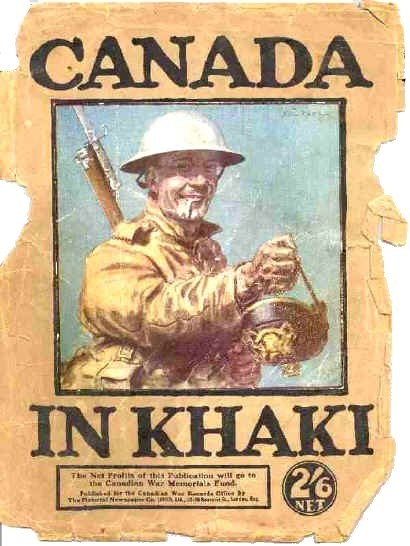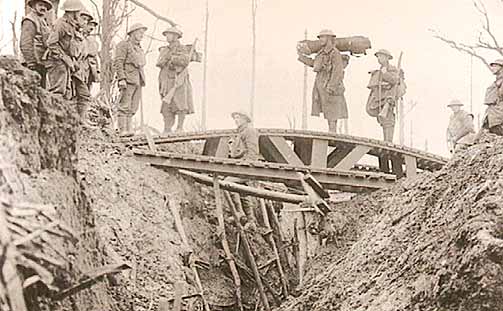
I had a conversation with my aunt last week and she asked me, "Was Jack at Vimy?." Yes he was...
The beginning of April, found Jack and his battalion still encamped at Bois des Alleux. On April 2nd, the largest artillery barage (which had started on March 24th) was stepped up. To the Germans, it became known as the "Week of Suffering." Over one million shells were dropped during this time. A major assault was coming. Jack and the rest of the men of the 123rd Pioneer Battalion, though, still worked on their plank road.
According to the 123rd War diary (dated April 4th) a meeting between the CO and Major's Boone and Smith discussed the possibility of the battalion taking part in the coming offensive. No word was received on that suggestion.
On April 5th, A and B companies, while working on the plank road, where shelled and gassed. Four causalities from B company were recorded. Two days later, 123rd recorded their first KIA. Pte. G.R. Helm was killed by shell fire and buried that day in Ecovires Cemetery.
After days of waiting for their orders for the coming offensive, it was decided that the 123rd would be part of it.
On April 9th at 530am, the main assualt on Vimy Ridge began. It appears that the 123rd was tasked to keep up the maintenance of the forward roads leading to the battle. Throughout the day (as the War diary records) wounded Canadian soldiers and German prisoners kept coming down the road. In less than two hours three out of four Canadian divisions had taken their objectives.
It doesn't appear that Jack and the rest of the 123rd were aware of the significance of Vimy Ridge. Oh, they knew it was a great victory, but soon they were all back to work on that plank road. Even though they were short of supplies, the road was finished on April 16th. Days later they were detailed to build another one near Maison Blanche. This work was carried out throughout the rest of the month.
Today, Vimy Ridge has taken on the status of legend. The "Birth of a Nation" is what I have heard those few days described as. It was the first time all four Canadian divisions fought as one and one of the first victories of the war. I don't know what Jack thought about it all. All I do know is that day, Jack and his buddies worked on the main road to the battle. After that, they were back on the plank road.














